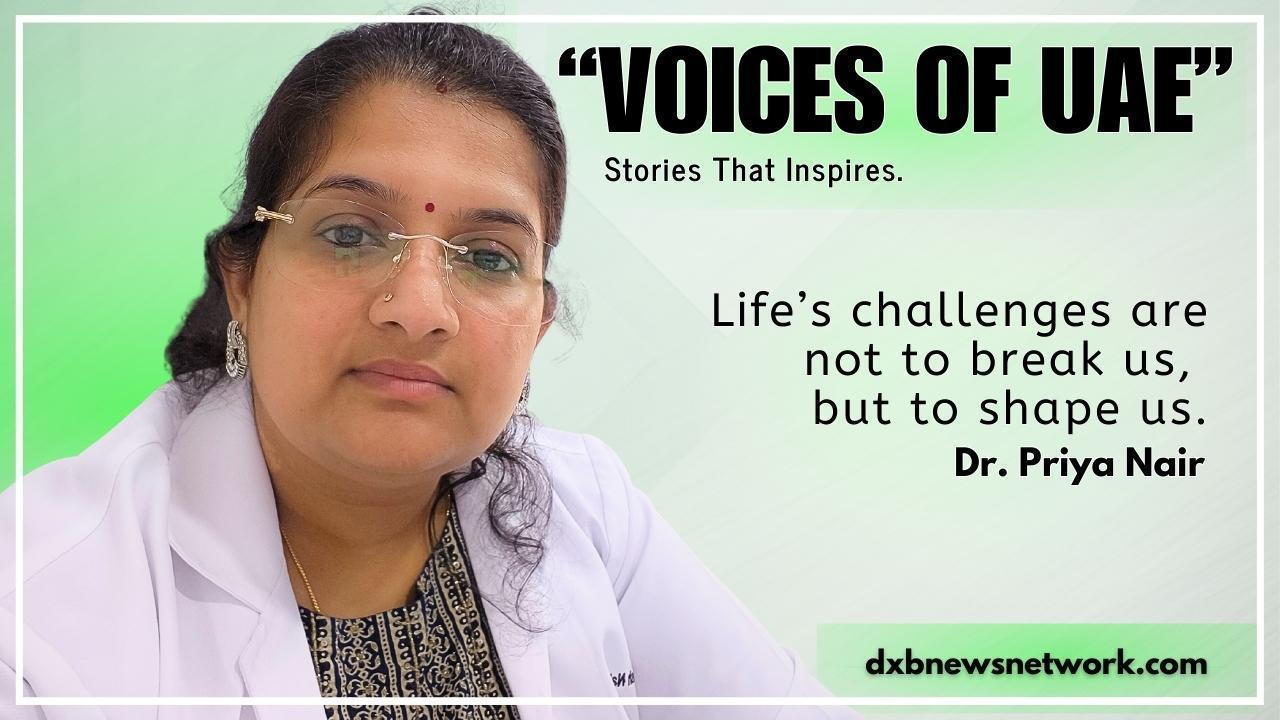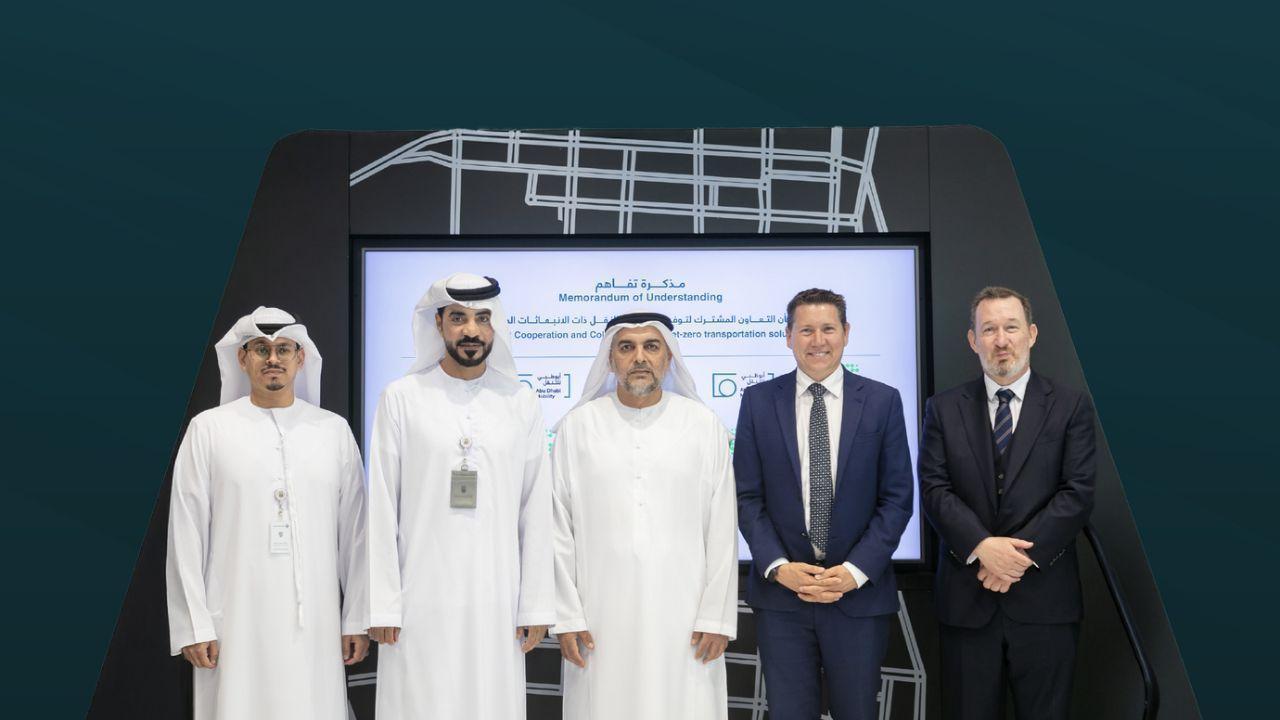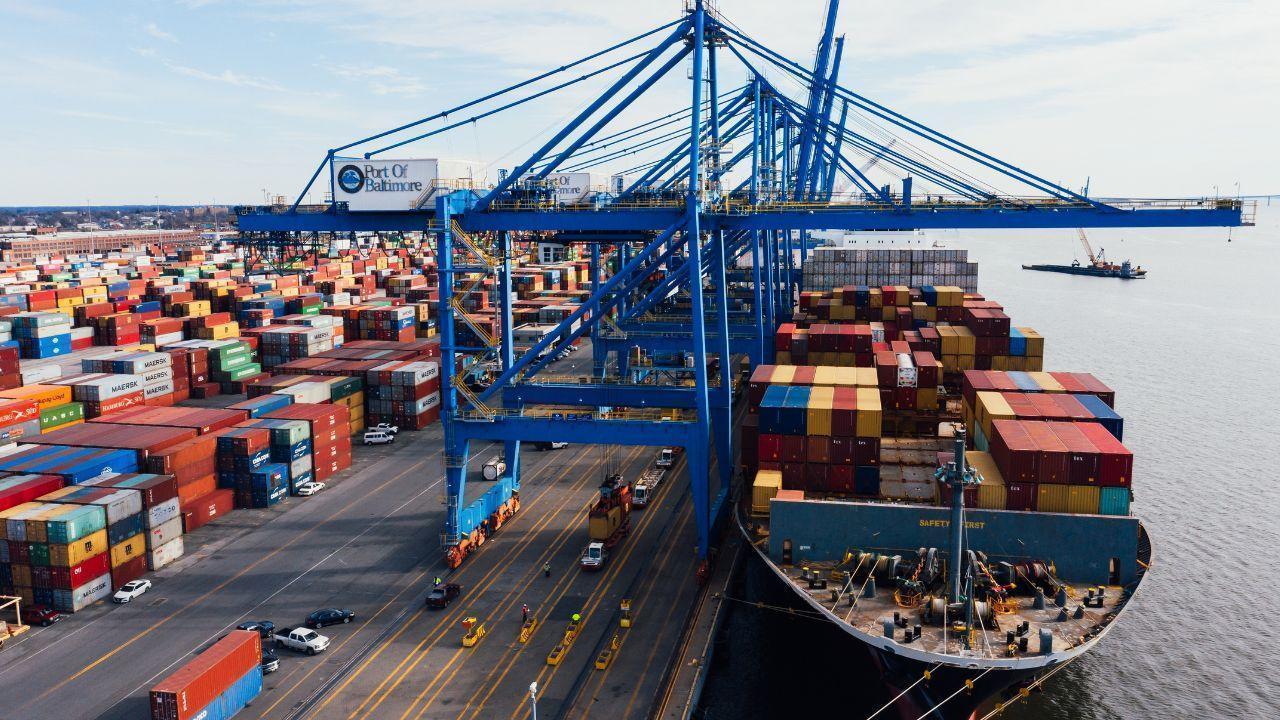
Germany, renowned for its economic prowess and cultural richness, is a magnet for expatriates seeking career growth, quality living, and diverse experiences. Boasting efficient transportation and a robust healthcare system, the country offers numerous benefits. Whether in vibrant cities or serene countryside, Germany accommodates various lifestyles. Its accessible infrastructure, excellent education, and vibrant culture enhance its appeal. While moving may seem daunting, Germany's efficient processes ease the transition. In essence, living and working in Germany promises a fulfilling blend of opportunities and experiences in a welcoming environment.
Germany offers a thriving job market ripe with opportunities for professionals from various backgrounds, making it an enticing prospect for those seeking career growth. The country's strong economy, renowned for its stability and innovation, fuels a diverse array of industries, including engineering, technology, finance, healthcare, and manufacturing. This economic diversity ensures that individuals with a range of skills and expertise can find suitable employment options tailored to their interests and qualifications.
For instance, Germany's engineering sector is globally recognized for its excellence, with companies like BMW, Siemens, and Bosch leading the charge in innovation and technology. These firms offer exciting career prospects for engineers and technicians, whether in automotive design, renewable energy, or industrial automation. Similarly, the burgeoning tech startup scene in cities like Berlin and Munich provides opportunities for software developers, data analysts, and cybersecurity experts to make their mark in the digital realm.
Moreover, Germany's finance industry, centered in Frankfurt, offers lucrative positions in banking, investment management, and financial consulting. With the presence of major institutions like Deutsche Bank and Commerzbank, as well as a growing fintech sector, professionals in finance have ample opportunities to thrive and advance their careers.
In the healthcare sector, Germany's universal healthcare system ensures a constant demand for skilled medical professionals, including doctors, nurses, and healthcare administrators. Whether working in public hospitals, private clinics, or research institutions, healthcare professionals can contribute to the well-being of society while pursuing their professional goals.
Furthermore, Germany's manufacturing sector remains a cornerstone of its economy, with companies producing a wide range of products, from automobiles and machinery to chemicals and pharmaceuticals. Skilled workers in fields such as production, quality control, and supply chain management play vital roles in maintaining the country's reputation for precision engineering and high-quality manufacturing.
Overall, Germany's flourishing work opportunities offer a pathway to personal and professional fulfillment for expatriates looking to embark on new career adventures. With its diverse industries, innovative spirit, and commitment to excellence, Germany continues to attract talent from around the globe, making it a vibrant hub for career growth and development.
Navigating the visa and work permit process in Germany is a crucial step for expatriates looking to establish themselves in the country's vibrant job market. Germany's immigration system is designed to attract skilled professionals from around the world, but understanding the requirements and procedures can be complex.
To begin with, individuals intending to work in Germany typically need to secure a job offer from a German employer before applying for a visa or work permit. This demonstrates to the authorities that there is a genuine need for their skills in the German labor market. Key sectors such as engineering, IT, healthcare, and finance often have high demand for skilled workers, making them prime targets for employment opportunities.
Once a job offer is secured, the next step is to determine the appropriate visa or work permit category. Germany offers several types of permits depending on factors such as the duration of employment, salary level, and qualifications of the applicant. For example, the EU Blue Card is geared towards highly skilled workers with a university degree and offers benefits such as facilitated residence rights and family reunification options.
Applying for a visa or work permit involves submitting a comprehensive application package to the German embassy or consulate in the applicant's home country. This typically includes proof of employment, educational qualifications, financial stability, and valid travel documents. It's essential to ensure that all required documents are accurate and up-to-date to avoid delays or complications in the application process.
Once the application is submitted, it undergoes review by the relevant authorities, who assess the applicant's eligibility based on the criteria outlined in German immigration law. Processing times can vary depending on factors such as the applicant's nationality, the workload of the embassy or consulate, and the complexity of the case.
Upon approval, the applicant receives their visa or work permit, allowing them to legally reside and work in Germany for the specified duration. It's crucial to adhere to any conditions or restrictions associated with the permit, such as maintaining employment with the sponsoring employer or renewing the permit before it expires.
Overall, while the visa and work permit process in Germany may seem daunting, thorough preparation and understanding of the requirements can help smooth the path to successful immigration. With its welcoming attitude towards skilled professionals and commitment to fostering a diverse workforce, Germany continues to attract talent from around the world, enriching its economy and society in the process.

Understanding the cost of living in Germany is essential for expatriates planning to relocate to this vibrant European nation. While Germany offers numerous advantages, including a strong economy, excellent infrastructure, and high living standards, it's crucial to be aware of the expenses associated with daily life.
One significant factor influencing the cost of living in Germany is accommodation. Rent prices can vary significantly depending on the location, with major cities like Berlin, Munich, and Frankfurt typically commanding higher rents than smaller towns and rural areas. Expatriates may choose between renting apartments, houses, or shared accommodations, with options ranging from furnished to unfurnished properties.
Aside from accommodation, other essential expenses in Germany include utilities, groceries, transportation, healthcare, and leisure activities. Utilities such as electricity, heating, water, and internet services contribute to monthly living costs, with prices varying depending on the size of the household and usage patterns.
Grocery expenses also constitute a significant portion of the cost of living, with prices for food items, household supplies, and personal care products varying depending on the region and the type of stores visited. While shopping at local markets and discount supermarkets can help save money, imported or specialty items may be more expensive.
Transportation costs in Germany can vary depending on individual preferences and needs. The country boasts an efficient public transportation system, including trains, buses, trams, and subways, with ticket prices typically affordable and discounts available for regular commuters. Alternatively, owning a car entails additional expenses such as fuel, insurance, maintenance, and parking fees.
Healthcare is another important consideration, with Germany's universal healthcare system offering comprehensive coverage for residents. Expatriates are usually required to contribute to statutory health insurance, with costs based on income levels and other factors. Private health insurance options are also available for those seeking additional coverage or preferential treatment.
Finally, leisure activities and entertainment expenses contribute to the overall cost of living in Germany. Whether dining out at restaurants, attending cultural events, or participating in recreational activities, expatriates can expect to allocate a portion of their budget towards leisure pursuits.
Overall, while the cost of living in Germany may be higher than in some other countries, the country's high quality of life, excellent infrastructure, and diverse opportunities make it a desirable destination for expatriates. By carefully managing expenses and budgeting accordingly, individuals can enjoy a fulfilling lifestyle in this dynamic and welcoming nation.
Finding the perfect place to call home in Germany is an essential step for expatriates settling into their new lives. Whether in bustling cities or tranquil towns, a variety of housing options cater to diverse preferences and budgets.
Begin by considering the desired location, taking into account factors such as proximity to work, public transportation, and essential services. Online platforms like ImmobilienScout24 and WG-Gesucht offer extensive listings, simplifying the search process.
When viewing properties, pay attention to rental terms and conditions outlined in lease agreements. Understanding details like rental duration, deposit requirements, and maintenance responsibilities is crucial before making any commitments.
For those seeking cost-effective living arrangements and social connections, shared living spaces known as Wohngemeinschaften (a living arrangement in which several tenants share an apartment.) or WG present an attractive option.
Once a suitable accommodation is found, secure the lease and prepare for the relocation process by organizing utilities and notifying relevant authorities of the address change.
In conclusion, while finding accommodation in Germany may require some effort, the country's diverse housing options ensure that expatriates can find a place to call home that suits their needs and preferences.
Germany's healthcare system is often lauded as one of the finest in the world, renowned for its comprehensive coverage, high-quality care, and patient-centric approach. Expatriates relocating to Germany can rest assured that they will have access to a healthcare system that prioritizes their well-being and provides peace of mind.
One of the defining features of Germany's healthcare system is its universal coverage, which ensures that all residents, including expatriates, have access to essential medical services. Whether it's routine check-ups, emergency care, or specialized treatments, individuals can seek medical attention without worrying about exorbitant out-of-pocket expenses.
Moreover, Germany's healthcare system places a strong emphasis on preventive care and early intervention, aiming to identify and address health issues before they escalate. Regular screenings, vaccinations, and health education initiatives are integral components of this preventive approach, promoting overall well-being and reducing the burden on the healthcare system.
Another key aspect of Germany's healthcare system is the freedom of choice it offers to patients. Unlike some other countries where healthcare options may be limited, individuals in Germany have the flexibility to choose their healthcare providers, specialists, and treatment facilities based on their preferences and needs. This patient autonomy fosters a sense of empowerment and ensures that individuals receive personalized care that aligns with their values and priorities.
In addition to its universal coverage and patient-centered approach, Germany's healthcare system is characterized by its high standards of quality and safety. Medical professionals undergo rigorous training and adhere to strict regulatory standards, ensuring that patients receive care of the highest caliber. Furthermore, healthcare facilities in Germany are equipped with state-of-the-art technology and adhere to stringent hygiene protocols, providing patients with confidence and peace of mind during their medical journey.
Overall, Germany's healthcare system stands as a shining example of compassionate, accessible, and high-quality care. Expatriates relocating to Germany can take comfort in knowing that they will have access to a healthcare system that prioritizes their well-being and supports their health needs, allowing them to thrive and enjoy a fulfilling life in their new home.
Germany boasts an education system that is revered globally for its excellence, diversity, and commitment to nurturing the talents of young minds. Expatriates relocating to Germany will find a plethora of educational opportunities available for their children, from early childhood education to higher learning institutions.
One of the hallmarks of Germany's education system is its emphasis on inclusivity and equal access to quality education for all. Regardless of socio-economic background or nationality, every child in Germany has the right to attend school and receive a comprehensive education. This commitment to equity ensures that expatriate children have the same opportunities for academic success as their German peers.
Moreover, Germany's education system is known for its academic rigor and emphasis on holistic development. While traditional subjects such as math, science, and languages are prioritized, schools also place importance on extracurricular activities, sports, and the arts. This well-rounded approach to education fosters creativity, critical thinking, and social skills, preparing students for success in an increasingly globalized world.
Expatriates in Germany can choose from a variety of educational options to suit their preferences and needs. Public schools, funded by the government, offer free education to all residents and are known for their high standards of teaching and learning. Alternatively, private schools and international schools cater to specific curricula, languages, and educational philosophies, providing expatriates with additional choices for their children's education.
For those pursuing higher education, Germany is home to some of the world's most prestigious universities and research institutions. Whether studying engineering, medicine, humanities, or the arts, students benefit from top-notch facilities, renowned faculty, and cutting-edge research opportunities. Furthermore, many universities offer programs taught in English, making them accessible to expatriates from diverse linguistic backgrounds.
In addition to its academic offerings, Germany's education system places a strong emphasis on vocational training and apprenticeships. These hands-on learning experiences provide valuable skills and qualifications for students interested in pursuing careers in trades and technical fields, complementing traditional academic pathways.
Overall, Germany's education system stands as a beacon of excellence and innovation, offering expatriates a wealth of opportunities for their children's academic and personal growth. With its commitment to equity, academic rigor, and diverse educational options, Germany continues to nurture the talents of future generations and prepare them for success in an ever-changing world.
Understanding and embracing the cultural nuances of Germany is like embarking on a fascinating journey that lets expatriates uncover the country's deep-rooted traditions, diverse customs, and everyday life. Germany's cultural richness is like a colorful quilt woven from centuries of history, varied regional identities, and modern influences, offering expatriates a treasure trove of experiences to delve into and enjoy.
One of the most important cultural traits in Germany is their strict adherence to punctuality and sticking to schedules. Germans highly value being on time and expect others to respect agreed-upon meeting times and deadlines. Being punctual isn't just about being polite; it reflects professionalism and reliability, traits that Germans greatly appreciate.
Direct communication is another key aspect to grasp when interacting with Germans. They prefer honesty and clarity in conversations, opting for straightforwardness over beating around the bush. While this directness might seem a bit blunt to some, it's simply their way of prioritizing efficiency and transparency in communication.
Professionalism in the workplace is paramount in Germany, emphasizing competence, reliability, and dedication. Germans take immense pride in their work and expect the same level of professionalism from others. Earning trust and respect through consistent performance and reliability is crucial for thriving in the German business world.
Language also plays a vital role in understanding and adapting to German culture. While many Germans are fluent in English, making an effort to learn German, even just the basics, shows respect for their culture and fosters deeper connections with native speakers. Language skills open doors to meaningful conversations, cultural insights, and integration into German society.
Social interactions and etiquette also carry significant weight in German culture. Firm handshakes, maintaining eye contact, and using titles and last names in formal settings are common practices. Observing dining etiquette, such as keeping hands visible on the table and saying "Prost" (cheers) before taking the first sip during a toast, demonstrates respect for German customs.
In essence, embracing the cultural nuances of Germany is a rewarding adventure that allows expatriates to build genuine connections, navigate social situations smoothly, and develop a profound appreciation for the country's diverse cultural heritage. By embracing punctuality, direct communication, professionalism, language learning, and social etiquette, expatriates can seamlessly integrate into German society and fully immerse themselves in its vibrant culture.
Getting around in Germany is super easy thanks to its amazing transportation system. Whether you're hopping between cities or exploring different regions, Germany's transport network has got you covered with lots of options. Whether you're commuting within a city or traveling across the country, you can count on Germany's transportation system to be convenient, reliable, and easy to use.
Trains are a big deal in Germany, and Deutsche Bahn (DB) runs a fantastic network. These modern, high-speed trains zip you from one major city to another in no time. Plus, they're comfy and the views are pretty awesome. Whether you're heading to bustling cities like Berlin and Munich or charming countryside towns, trains are a great way to see the sights and get around.
And if you're sticking to urban areas, Germany's cities have a great mix of buses, trams, and subways. They're super handy for navigating the city streets and getting where you need to go. Plus, lots of cities have ticket systems that let you switch between different types of transport with just one ticket.
For those who like to drive, Germany's roads are top-notch. Highways are well-maintained, signs are clear, and there are some really scenic routes to explore. Road trips are a great way to see the country at your own pace and take in all the beautiful landscapes.
Germany's also big on eco-friendly travel. Cities like Berlin and Munich have tons of bike lanes and bike-sharing programs, so you can pedal your way around town while reducing your carbon footprint.
And if you're looking to jet off somewhere, Germany's airports have you covered. Major hubs like Frankfurt, Munich, and Berlin offer flights to destinations all over the world. So whether you're planning a quick getaway or a big adventure, getting to and from Germany is a breeze.
In a nutshell, Germany's transportation system is all about efficiency, innovation, and accessibility. Whether you're traveling by train, bus, car, bike, or plane, getting around Germany is a piece of cake. So why not hop on board and start exploring all the amazing things this country has to offer?
Getting through Germany's bureaucratic system might sound scary, but trust me, it's not as bad as it seems. Germany takes its paperwork seriously, making sure everything's done right to keep things running smoothly.
First off, paperwork is key. Get ready to fill out forms, make copies of important documents, and keep everything organized. Whether you're applying for a visa, residency permit, or just registering your address, having all your paperwork in order is a must.
Next, be proactive and stay organized. Start early, gather all the documents you need, and follow the instructions carefully. Mistakes or missing documents can cause delays, so double-check everything before you submit.
And patience is a biggie. Some things take time, especially stuff like visa applications or residency permits. Stay calm and know that the system's all about being thorough to make sure things are fair and accurate.
Knowing some German can really help too. While lots of officials speak English, having a basic understanding of German can make things smoother when you're filling out forms or talking to government offices. It's a sign of respect for the local culture and can speed things up.
Lastly, don't be shy about asking for help. There are tons of resources out there for expats dealing with German bureaucracy, like expat forums, government websites, and relocation services. Getting assistance from folks who know the ropes can make things a whole lot easier.
So, to sum up, mastering Germany's bureaucracy takes patience, organization, and a willingness to tackle paperwork. By staying on top of your documentation, being proactive, staying patient, learning a bit of German, and reaching out for help when you need it, you'll be able to navigate the system and settle into your new life in Germany with ease.
Germany is a sought-after destination for expatriates due to its economic strength, cultural richness, and excellent quality of life. The country offers a plethora of benefits, including efficient transportation, robust healthcare, and diverse lifestyle options. Expatriates can thrive in Germany's flourishing job market, with opportunities in industries such as engineering, technology, finance, healthcare, and manufacturing. Navigating bureaucratic processes, including visa and work permits, requires patience, organization, and understanding of documentation requirements. Understanding the cost of living is essential, with factors such as accommodation, utilities, transportation, healthcare, and leisure activities influencing expenses. Finding suitable housing involves considering location, rental terms, and accommodation options. Germany's healthcare system provides comprehensive coverage, high-quality care, and patient autonomy. The education system prioritizes inclusivity, academic rigor, and vocational training opportunities. Embracing cultural nuances, such as punctuality, direct communication, and professionalism, facilitates integration into German society. Germany's seamless transportation system offers various options for getting around, including trains, buses, cars, bikes, and planes. Mastering the bureaucracy requires patience, organization, and language skills, with resources available for expatriates navigating administrative processes.
The views and opinions expressed in this article are those of the author and do not necessarily reflect the official policy or position of DXB News Network. Readers are encouraged to seek professional advice and conduct their own research before making decisions related to living and working in Germany.
#trending #latest GermanyExpats #WorkinGermany #LifeinGermany #MovingtoGermany #GermanCulture #GermanLife #ExpatLife #GermanyTravel #ExploreGermany #GermanAdventure #GermanyJobs #GermanVisa #GermanHealthcare #GermanEducation #GermanTransportation #GermanBureaucracy #GermanyTips #breakingnews #worldnews #headlines #topstories #globalUpdate #dxbnewsnetwork #dxbnews #dxbdnn #dxbnewsnetworkdnn #bestnewschanneldubai #bestnewschannelUAE #bestnewschannelabudhabi #bestnewschannelajman #bestnewschannelofdubai #popularnewschanneldubai

Watch India vs Pakistan live in the Champions Trophy 2025 Group A match in Dubai...Read More.

Pakistan's Aaqib Javed brings in Mudassar Nazar to prep team for Champions Trophy vs India...Read More.
 Sheikh Hamdan Shares Video of 31 Athletes Jumping from Burj Khalifa
Sheikh Hamdan Shares Video of 31 Athletes Jumping from Burj Khalifa
On February 18, 31 athletes jumped from Burj Khalifa, landing safely by Dubai Mall
 Culture, history, and identity intertwine through Arab lenses at Xposure 2025
Culture, history, and identity intertwine through Arab lenses at Xposure 2025
The Road to Xposure unveils 108 works capturing the Arab world's journey and spirit
 Join a Weekend of Discovery, Creativity & Family Fun at Xposure 2025
Join a Weekend of Discovery, Creativity & Family Fun at Xposure 2025
Enjoy interactive exhibits, tours, free portraits & coffee at Xposure 2025
 Abu Dhabi’s Environment Agency wins Quality Award for 3rd year
Abu Dhabi’s Environment Agency wins Quality Award for 3rd year
The European Society for Quality Research honored EAD for the third year, praising its quality-focus
 Voices of UAE: From Counting Her Final Days to Saving Lives – Dr. Priya Nair’s Heart-Stopping Battle and Second Birth.
Voices of UAE: From Counting Her Final Days to Saving Lives – Dr. Priya Nair’s Heart-Stopping Battle and Second Birth.
Dr. Priya Rathish Nair, a Specialist Gynecologist at Shifa Al Jazeera Medical Centre in Ras Al Khaim
Catch the live stream of India vs Pakistan ICC Champions Trophy 2025

Watch India vs Pakistan live in the Champions Trophy 2025 Group A match in Dubai
Pakistan's Secret Weapon for Champions Trophy 2025 to Defeat India Revealed

Pakistan's Aaqib Javed brings in Mudassar Nazar to prep team for Champions Trophy vs India
ITC Abu Dhabi & GIGATONS partner to drive net zero e-mobility solutions

ITC Abu Dhabi partners with GIGATONS to advance smart, zero-emission e-mobility
Dubai introduces new six-month multiple-entry visa for yacht crew

Visit GDRFA at the Dubai International Boat Show for yacht crew visa details
Understanding the Connection Between Mind and Body Health

Discover how mind and body health are deeply connected
Shura Council Speaker Leads Kingdom’s Delegation at Arab Parliament Meeting

Shura Speaker leads Kingdom’s delegation to 7th Arab Parliament Conference in Cairo
Jeddah Literary Club Hosts Events to Celebrate Saudi Arabia's Founding Day

Jeddah Literary Club marked Founding Day with plays on the First Saudi State
DEWA Youth Council Wins 2025 Best National Government Youth Council Award

DEWA Youth Council wins 2025 Best National Government Youth Council Award in UAE
The Role of Nutrition and Exercise in Good Health

Discover how nutrition and exercise shape a healthier lifestyle
Sharaf Group to Invest ₹5,000 Cr in Kerala’s Logistics & Shipping Sector

UAE’s Sharaf Group to invest ₹5,000 Cr in Kerala’s logistics & shipping sector
3001E, 30 Floor, Aspin Commercial Tower, Sheikh Zayed Road, Dubai, UAE
+971 52 602 2429
info@dxbnewsnetwork.com
© DNN. All Rights Reserved.